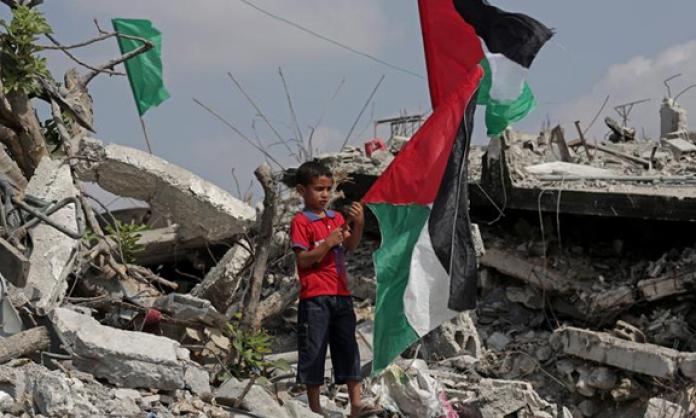Thousands of Palestinians attended the funeral of 19-year-old Ahmad Ibrahim al-Najjar from Burin village on 1 February. Al-Najjar was shot dead the previous day. He was the second Palestinian in the West Bank to be killed in January by Israel’s military.
On 14 January, 17-year-old Osama Ali Mohammad Abu Jundiyya was shot in Hebron. He later died after the military prevented a Palestinian ambulance from reaching him.
The death of al-Najjar came just days after the United Nations Office for the Coordination of Humanitarian Affairs in the Occupied Palestinian Territories reported that Israel’s military has inflicted the highest number of injuries in a decade on Palestinians in the West Bank.
According to the agency’s December Humanitarian Bulletin, Israel’s occupation forces killed 56 Palestinians and injured 5,868 in 2014. Of those killed, 12 were children. According to the report, the increase in fatalities and injuries was a direct result of a “sharp increase in the Israeli forces’ use of live ammunition in crowd control situations”.
The report also noted that while Israel has increased its use of excessive force, accountability for the deaths and injuries remains low, with Israel investigating only two-thirds of fatalities and subsequently issuing an indictment against only one soldier.
In 2005, Human Rights Watch noted, in a report title Promoting Impunity, that Israel had systematically fostered a climate of impunity within the ranks of the military, refusing to investigate the murder of Palestinians killed by soldiers. The HRW report said that, from 2000 to 2005, Israeli’s occupation forces had killed or seriously injured thousands of Palestinian civilians but that fewer than 5 percent of the fatalities led to investigations.
In February last year, an Amnesty International report, Trigger-happy: Israel’s use of excessive force in the West Bank, confirmed that little has changed. According to Amnesty, Israel’s occupation forces “displayed a callous disregard for human life by killing dozens of Palestinian civilians, including children, in the occupied West Bank over the past three years with near total impunity”.
The report also said that soldiers had engaged in arbitrary and abusive force. In a number of cases, there was strong evidence that Israeli soldiers had engaged in war crimes, carrying out “wilful killings”.
Amnesty Middle East and North Africa director Philip Luther noted: “The frequency and persistence of arbitrary and abusive force against peaceful protesters in the West Bank by Israeli soldiers and police officers – and the impunity enjoyed by perpetrators – suggests that it is carried out as a matter of policy.”










